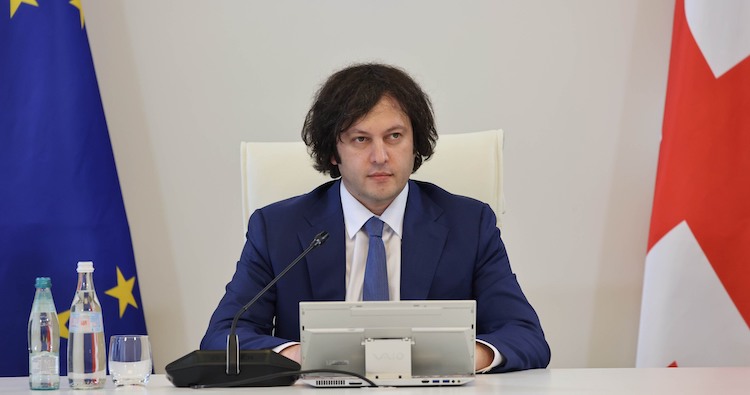Georgian PM claims transparency law “necessary condition to move forward” in EU integration

The bill and its introduction have led to public protests and criticism from some of Georgia’s international partners. Photo: Government Administration
Georgian Prime Minister Irakli Kobakhidze on Tuesday rejected claims that the controversial bill on transparency of foreign influence would pose a threat to the country’s European integration by saying its adoption was a “necessary condition to move forward” on the country’s EU path.
In his remarks over the bill, which calls for the registration of non-commercial legal entities and media outlets in the country as “pursuing the interests of a foreign power” if they derive more than 20 percent of their funding from abroad, Kobakhidze said the “democratic process” involved debates on the legislative initiative by political parties in the Parliament “within the country”.
“Any European politician, when making a statement regarding a law discussed by the [Georgian] Parliament, they automatically enter into a political debate”, he said.
That is, today Josep Borrell [the EU High Representative for Foreign Affairs and Security Policy] is involved in political debates that should be conducted within the country. The law is debated by political parties in the Parliament, not by someone from outside, even if it is a partner and friend. This is certainly an interference”, Kobakhidze claimed.
The PM stressed “exercising foreign influence” was “not an a priori negative phenomena”, citing the example of the infrastructural project of the Kvesheti-Kobi road of the North-South Corridor in the country that involves the European Bank for Reconstruction and Development and the Asian Development Bank.
We took a loan [for this project], but in this case too, a foreign power, a particular organisation, was involved in pursuing a particular interest, and that foreign interest was to support our infrastructure projects”, he continued.
“This law will not pose a threat - on the contrary, the adoption of this law is a necessary condition for us to move forward on the path of European integration. [...] We will deliver the truth and open accession negotiations with the EU”, Kobakhidze concluded.
The bill and its introduction have led to public protests and criticism from some of Georgia’s international partners.
 Tweet
Tweet  Share
Share